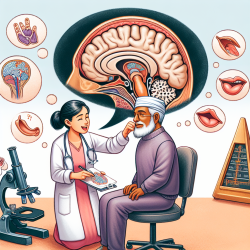Understanding the Ethical Landscape of Research in Oppressed Populations
As practitioners in the field of speech-language pathology, our commitment to improving outcomes for children must be grounded in ethical and data-driven practices. The research article "Health, Human Rights, and the Conduct of Clinical Research within Oppressed Populations" by Mills and Singh (2007) provides crucial insights into the ethical challenges and human rights considerations that arise when conducting research in vulnerable populations.
The Ethical Dilemma
The globalization of clinical trials has brought to light the complexities of conducting research in marginalized or oppressed populations. The article highlights case studies from Thailand, Nepal, and Burma (Myanmar), illustrating the inadequacies of current ethical guidelines when research is conducted in these settings. The ethical dilemma is not just about ensuring informed consent but also about protecting participants from human rights violations.
Key Considerations for Practitioners
Practitioners can enhance their research skills and ethical practices by considering the following recommendations derived from the article:
- Health Promoting Interventions: Ensure that research interventions are health-promoting and address a relevant illness within the population. Engage with target groups to plan how findings will benefit the community.
- Community Participation: Foster community involvement that reflects the level of political oppression. Establish Community Advisory Boards (CABs) that include diverse educational levels, oppressive situations, age, and gender.
- Human Rights Status Assessment: Conduct formative research to understand the human rights status of the population, utilizing NGO literature and other resources.
- Capturing Human Rights Violations: Research should include mechanisms to capture human rights violations, allowing for subgroup analyses and informed ethical considerations.
- Ethical Methodology Reporting: Clearly report the ethical methodologies used in research, addressing challenges and limitations encountered in the study.
Encouraging Further Research
The article emphasizes the need for further discussion and development of international legal frameworks to address the complexities of research in oppressed populations. Practitioners are encouraged to delve deeper into this topic, considering how ethical research can be conducted while respecting human rights and advancing scientific knowledge.
By integrating these considerations into their research practices, practitioners can contribute to more ethical and effective outcomes for vulnerable populations, particularly children who may be affected by these studies.
To read the original research paper, please follow this link: Health, human rights, and the conduct of clinical research within oppressed populations.










